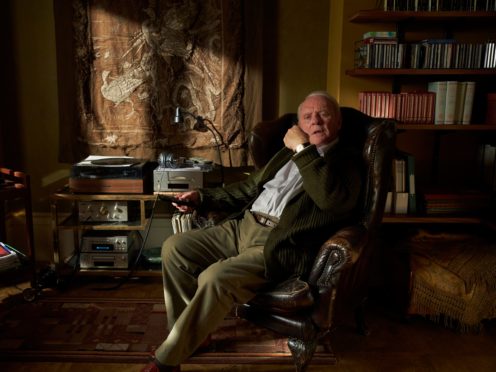Sir Anthony Hopkins’ Oscar win came as a surprise to everyone including him, according to the director of the film that landed him the gong.
Florian Zeller, who also won an Oscar for his screenplay of The Father, said he did not expect his star to be recognised with the best actor trophy.
It was widely thought the prize would be awarded posthumously to Chadwick Boseman, for his turn in Ma Rainey’s Black Bottom.
Sir Anthony, who plays an ageing man struggling with memory loss in the film, did not attend the ceremony in Los Angeles.
Instead he shared an acceptance speech on social media the following day, filmed in Wales, where he was on holiday.
Zeller told the PA news agency: “Everyone was surprised because it was thought already that it was not for him, and so it was like a coup de theatre, as we would say in French.
“But that’s great, because it means that people are following their heart, and to me it was so meaningful, because shooting the film, I think that I felt that something special was happening.
“He was so generous, so brave, as well, in his performance the way he did it, and I was so happy that people from the industry recognised that because he’s 83, you know, he could have made different choices, easier choices, but he’s still this artist, putting himself at risk, trying to turn something painful into beauty, not for himself, but just to share those emotions.
“And to me, this is what real artists do. And he’s a real artist. And that’s great that people recognise that this is something special.”

Zeller originally wrote the script as a play, which premiered in Paris before it was translated into English by Christopher Hampton, with whom the director shared the screenplay Oscar.
It ran in the West End in 2015 and 2016.
Zeller said he never thought of adapting it into a film, adding: “When I wrote the play, I had no idea that it might become something.
“I was not certain that the audience would be open to such an emotional journey and labyrinth.
“But then, I realised that the cinema, because of its language, could turn this experience into something even more powerful, because the idea was to put the audience in a unique position as if you were going through the labyrinth, as if you were in a way, in the main character’s head.
“I didn’t want The Father to be like a story, or not only a story, I wanted it to develop to be like an experience and the experience of what it could mean to lose everything, including your own bearings as a viewer.
“And this is something that could be done on stage, but the cinema, thanks to the the composition, the frames, the sets, could turn this experience into something even more disturbing, immersive and powerful. And that’s why I really wanted to make it.”
The Father is out now in UK cinemas.
